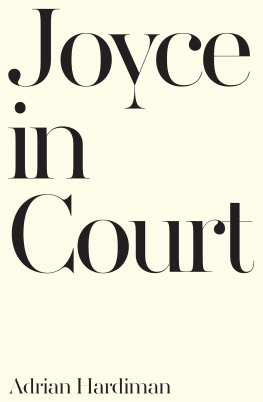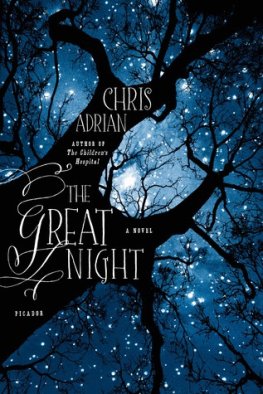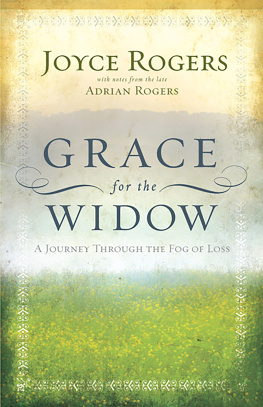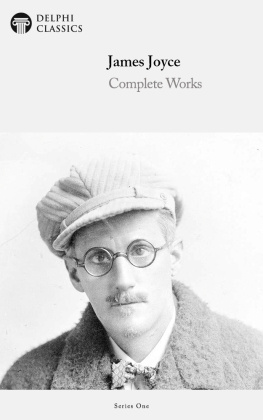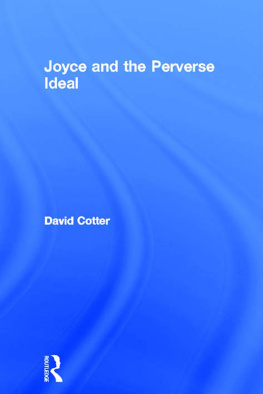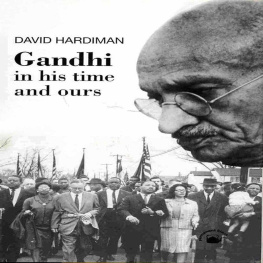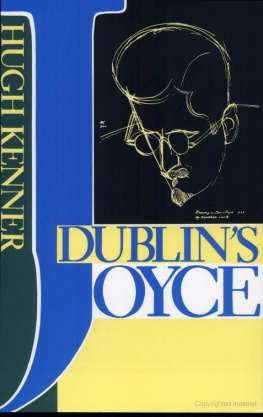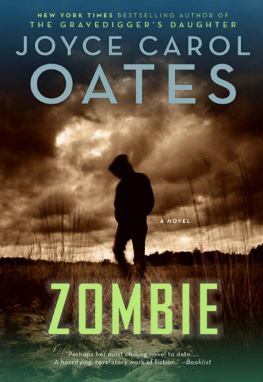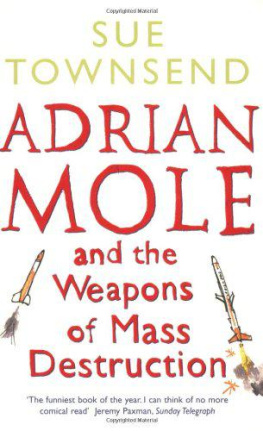Hardiman Adrian - Joyce in Court
Here you can read online Hardiman Adrian - Joyce in Court full text of the book (entire story) in english for free. Download pdf and epub, get meaning, cover and reviews about this ebook. City: London, year: 2018, publisher: Head of Zeus Ltd., genre: Art. Description of the work, (preface) as well as reviews are available. Best literature library LitArk.com created for fans of good reading and offers a wide selection of genres:
Romance novel
Science fiction
Adventure
Detective
Science
History
Home and family
Prose
Art
Politics
Computer
Non-fiction
Religion
Business
Children
Humor
Choose a favorite category and find really read worthwhile books. Enjoy immersion in the world of imagination, feel the emotions of the characters or learn something new for yourself, make an fascinating discovery.
- Book:Joyce in Court
- Author:
- Publisher:Head of Zeus Ltd.
- Genre:
- Year:2018
- City:London
- Rating:4 / 5
- Favourites:Add to favourites
- Your mark:
- 80
- 1
- 2
- 3
- 4
- 5
Joyce in Court: summary, description and annotation
We offer to read an annotation, description, summary or preface (depends on what the author of the book "Joyce in Court" wrote himself). If you haven't found the necessary information about the book — write in the comments, we will try to find it.
Joyce in Court — read online for free the complete book (whole text) full work
Below is the text of the book, divided by pages. System saving the place of the last page read, allows you to conveniently read the book "Joyce in Court" online for free, without having to search again every time where you left off. Put a bookmark, and you can go to the page where you finished reading at any time.
Font size:
Interval:
Bookmark:

www.headofzeus.com

Books about the work of James Joyce are an academic industry. Most of them are unreadable and esoteric. Adrian Hardimans book is both highly readable and strikingly original. He spent years researching Joyces obsession with the legal system, and the myriad references to notorious trials in Ulysses and Finnegans Wake . Joyce was fascinated by and felt passionately about miscarriages of justice, and his view of the law was coloured by the potential for grave injustice when policemen and judges are given too much power.
Hardiman recreates the colourful, dangerous world of the Edwardian courtrooms of Dublin and London, where the death penalty loomed over many trials. He brings to life the eccentric barristers, corrupt police and omnipotent judges who made the law so entertaining and so horrifying.
This is a remarkable evocation of a vanished world, though Joyces scepticism about the way evidence is used in criminal trials is still highly relevant.
To my grandchildren Vincent, Karen and Eva
Adrian Hardiman was always destined for a brilliant career. To his contemporaries at University College Dublin in the early seventies, he seemed to arrive fully formed as an articulate, brilliant and combative scholar, a formidable polemicist and a merciless critic of the student left. There could not have been any doubt that he would move seamlessly from the Literary and Historical Society, where he ran rings around his opponents, into the law and politics.
As a disenchanted observer of the coming generation of the States leaders, I could not have imagined finding enough in common with Adrian Hardiman to want to become his publisher (a career of which I knew nothing at the time).
My attitude was complicated when he offered, years later, to libel-read a book that many sensible people were advising me not to publish under any circumstances. The then editor of The Irish Times told me that the people called to account in the book would spend a hundred pounds to win a penny, which was not music to the ears of the very risk-averse senior executives at Random House to whom I answered for my enthusiasms. But the author was a rigorous researcher, and Hardiman gave the manuscript a clean bill of health. He thought that the book would contribute to puncturing the impunity of corrupt businessmen and politicians, and declined to bill us for his work. I realised that for him establishing the facts and telling the truth were more important than any apparent ideological differences.
In 2007, I had the pleasure of reading the manuscript of a book by my former history tutor Ronan Fanning. As we worked on Fatal Path , his masterly account of the high politics of the period between 1910 and 1920, which led inexorably to violent insurrection, guerrilla war and a bitter civil conflict, Ronan mentioned that his close friend Hardiman by then a Supreme Court Judge had a private passion: the work of James Joyce, and in particular Joyces own obsession with the law. I like books that drive writers compulsively down strange byways, and I wanted to know more.
I wrote to the Justice cautiously suggesting that we might discuss his work. He responded by inviting me to dinner, which turned into a very convivial evening rounded off by large whiskeys in a pub off Grafton Street. I walked away with about two kilos of typescript essays, lectures, drafts of articles for obscure legal and historical journals. He began work on a more coherent manuscript and sent me a first draft of the first third of the book, which I edited quite closely and returned to him. He was generously responsive. I looked forward to working with him. Here was a great lawyer reflecting on Irelands greatest writer, and in particular on Joyces suspicion of power and the need to be vigilant about the presumption of innocence, the manipulation of evidence and the danger of miscarriages of justice.
That enjoyable relationship was interrupted by the low politics of publishing. I resigned from Faber and Faber in the summer of 2014 and accepted a job with my former colleague Anthony Cheetham, a creative literary entrepreneur, at his new company Head of Zeus. In the late autumn of that year Adrian delivered an almost complete but still rough draft of his manuscript to Faber, where it sat apparently unread for the next four months. And that was the situation when the extraordinary mind of this wonderful, contrarian jurist was stopped by sudden death in March 2016.
Ronan Fanning became Adrians literary executor, and managed at last to extricate the manuscript from my former colleagues, who perhaps understandably didnt know what to do with the book I had commissioned. My serious work on the book began towards the end of 2016. By then, Ronan was himself severely ill, and he passed away in January of the New Year. I sorely missed his counsel as I edited the book, since he not only understood Adrians intentions but was also an acute critic of style and had a magisterial grasp of the historical hinterland to Joyces work. Above all, I regretted not being able to discuss the language and tone of the book, and aspects of its structure, with its author.
What you have in your hands is as faithful a version of the book that I think Adrian Hardiman would have wished to publish as I could achieve without him. I recast sentences and deleted passages that I thought were repetitious or less than fully formed, but of course I was unable to submit my work for his approval, and he could not expand or revise his draft text. Because he responded so well to my initial edit of his partial manuscript, I can only hope that he would not have been dismayed by what my colleagues and I have done.
In this task I had the peerless assistance of another editor, Linden Lawson, who is superbly meticulous and caring of writers and manuscripts. She brought this book to its final form. Patrick Geoghegan and Michael Sinnott have been very supportive and were extremely helpful in tracking down missing historical references and citations. Luca Crispis expertise on Joyces work and other sources was crucial, and he showed great attention to detail in reviewing the manuscript. And Jean Coyle, for many years Adrian Hardimans personal secretary, is probably more familiar with every word that Adrian wrote or uttered on the subject of Joyce than any of us.
Above all, my colleagues and I are deeply appreciative of the kindness and determination of Judge Yvonne Murphy, Adrian Hardimans wife, whose own contributions to the discovery of historical truth in Ireland are so invaluable.
In Ulysses I tried to keep close to fact [...to] reality which always triumphs in the end.
J AMES J OYCE , Conversations with Arthur Power
Ulysses is the first great monument of modernist literature in English. Almost immediately on its publication in book form in 1922 it was acknowledged not merely as an immense literary innovation but as a work that transformed the meaning of literature itself. In 1923 T. S. Eliot recognized the paradox that the book which overturned traditional modes of representation and of narrative was nonetheless directly rooted in the mythic origins of Western literature, in Homers Odyssey , which provided the structure of the novel and many of its tropes and references.
Eliot recognized Ulysses as a way of controlling, of ordering, of giving a shape and a significance to the immense panorama of futility and anarchy which is contemporary history. He concluded: It is, I seriously believe, a step towards making the modern world possible for art. Eliot perceived that the book was based on manipulating a continuous parallel between contemporaneity and antiquity and said that this had the importance of a scientific discovery.
Font size:
Interval:
Bookmark:
Similar books «Joyce in Court»
Look at similar books to Joyce in Court. We have selected literature similar in name and meaning in the hope of providing readers with more options to find new, interesting, not yet read works.
Discussion, reviews of the book Joyce in Court and just readers' own opinions. Leave your comments, write what you think about the work, its meaning or the main characters. Specify what exactly you liked and what you didn't like, and why you think so.

